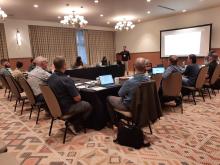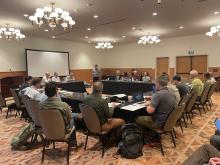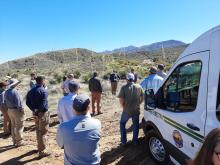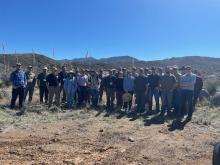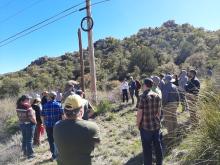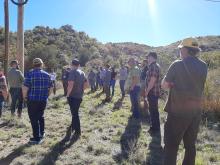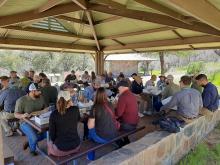Authored by Christine Mares, Good Neighbor Program Manager for the Arizona Department of Forestry and Fire Management (DFFM)
Arizona hosted the 2nd Council of Western State Foresters (CWSF) Good Neighbor Authority (GNA) Committee annual meeting on April 2-4, 2024 in Tucson.
The meeting drew GNA leads from Alaska, Arizona, Colorado, Idaho, Montana, New Mexico, North Dakota, Oregon, South Dakota, Washington, and Wyoming demonstrating a robust western states collaboration. The meeting was held at The Graduate Hotel at the University of Arizona Main Gate, and participants were treated to warm spring weather, including the always welcomed Sonoran Desert rain storm, delicious food options at every turn, evening streetcar rides, and a field tour to explore forestry applications in a unique landscape.
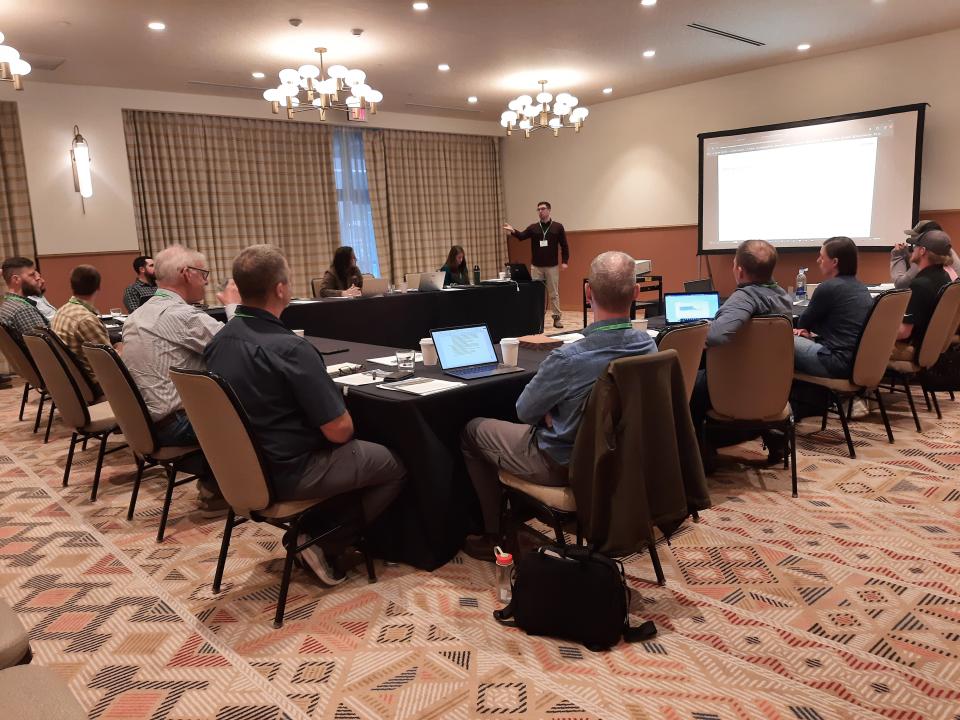
The meeting began with a welcome by CWSF GNA Committee Chair Trevor McConchie (WA) and Incoming Chair Christine Mares, followed by a Land Acknowledgement from Arizona State Forester Tom Torres. Attendees next heard from the Coronado National Forest Supervisor, Kerwin Dewberry, who said, “I consider our work with DFFM deeper than a partnership; we have a relationship that is based on shared values and understanding.”
The committee then took a deep dive into the CWSF GNA Committee 2024 Workplan priorities with the Data and State-to-State Agreement Workgroup leads. Next, program leads from AZ, ID, and WA, helped to examine GNA program business, including frank discussions regarding indirect rates, financial plans, and agency organizational structures.
Day 2 welcomed GNA leads from the USDA Forest Service (Forest Service) Washington Office and regions 2, 3, 6, and 8, and the Colorado Bureau of Land Management (BLM). The day kicked off with insightful discussions led by State Foresters from AZ, ID, and WA, setting the stage for a day of collaboration and shared learning.
According to WA State Forester, George Geissler, state GNA leads “...all are and have to be highly entrepreneurial; that is part of what makes your organizations so effective.” When asked the question: “What do you think about working yourself out of a job?” George remarked, “That is something to strive for, that our federal forests are in a condition where additional capacity is not needed.”
Next, participants learned about national policy and legislative items that have the potential to impact GNA followed by Forest Service Washington Office and BLM updates. A standout presentation by Elvy Barton, Salt River Project (SRP) Water and Forest Sustainability Manager, showcased how a partnership between SRP, DFFM, and the Forest Service is engaging in innovative approaches to overcome barriers such as capacity and funding, to facilitate effective forest restoration efforts in northern Arizona watersheds.
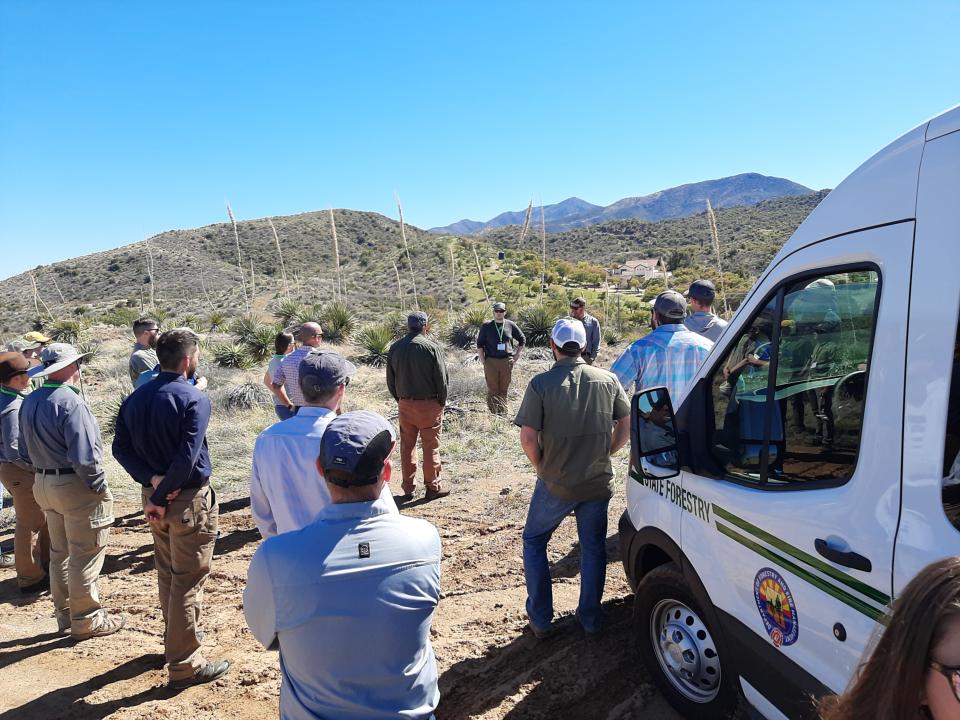
The remainder of the day unfolded amidst the natural beauty of Southern Arizona. Participants ventured outdoors with DFFM Southern District Forester Matt Wilson, embarking on a journey to the town of Oracle and visiting two GNA project sites nestled in the northern foothills of the Santa Catalina Mountains. A relaxing picnic lunch at Oracle State Park provided an opportunity for informal networking and rejuvenation, with attendees exploring the local flora and fauna and touring the historic Kannally Ranch House. Matt delivered an educational talk on management practices within the complex and ecologically significant Madrean Encinal Oak Woodland vegetation type, deepening participants' understanding of the region's unique ecological dynamics. The day concluded with a discussion on interfacing with grassland communities within a natural fire and grazing regime, underscoring the importance of adaptive management approaches in fostering resilience and biodiversity. Attendees were inspired by the shared experiences and insights gained during the enriching day in Tucson's wild spaces.
Day 3 brought together a panel of DFFM GNA and District Forester staff, setting the stage for an engaging exploration of GNA challenges and solutions. The highlight of the day was a thought-provoking group discussion that provided attendees from Arizona with a wealth of new perspectives to consider. Through the experiences shared by leads from established state GNA programs, attendees gained valuable insights into navigating partner roles and responsibilities, as well as overcoming implementation hurdles. The exchange of ideas and best practices emphasized the importance of shared learning within the forest management community.
The CWSF GNA Committee meeting in Tucson served as a platform for robust discussions, collaborative problem-solving, and knowledge exchange among regional stakeholders. As participants departed, they carried with them renewed momentum, actionable strategies, and perhaps most importantly a strong support system, to advance the responsible management of forest resources through the Good Neighbor framework.
To learn more about GNA, visit https://www.thewflc.org/partnerships/gna-information-and-resources.
Photos: Christine Mares and Kelsey Delaney

